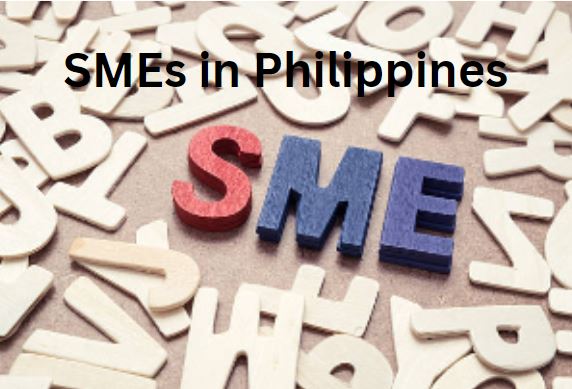Protection of Small and Medium Enterprises in Philippines
Introduction
Small and medium-sized businesses (SMEs) have a significant role in promoting growth in the Philippines, a function that extends beyond the straightforward production of cash or wealth. They are essential for spreading new industries over the countryside and boosting employment. Wherever they are developed, they are more likely to be labour-intensive, creating jobs. The Philippine government acknowledges SMEs as the foundation of national economic expansion. The government has specifically passed Republic Act 8289, commonly known as the Magna Carta for Small Enterprises, which intends to assist and strengthen the development of SMEs, especially those that are headquartered in rural and agricultural areas. The industry employs roughly 67% of the labour force and contributes about 33% to the economic growth of the nation. The SMEs play a critical role in the expansion of the economy. SMEs are crucial allies in the fight against poverty because they spread economic activity throughout rural areas and help ensure a more equitable distribution of income.

Small and medium-sized enterprises (SMEs) can have a substantial impact on the lives of a large number of rural residents, which makes them a source of power in rural areas. It is clear that SMEs have the capacity and ability to create jobs and income that, at the very least, will give individuals equal opportunities to access, own, and control resources. People have the chance to access better health, nutrition, and educational services through employment and income that SMEs may offer, and they can further develop their potential to access better housing, water, and electricity supply facilities. When the necessary support systems that will create an environment more favourable to business operations are in place, the creation and expansion of SMEs in rural communities become obvious. For instance, trade policy ought to motivate investors to start, grow, and scale their enterprises. Other elements that could help SME development include the existence of lending institutions with favourable loan terms; technical assistance from the public and private sectors; and initiatives to better the management and staff of SME by providing them with training in the nuances of business management.
Status of SMEs
The empowerment of rural communities with SMEs included material, perceptual, and relational transformations. According to the study’s findings, SMEs helped rural residents make changes in their life. Regarding the material component, SME jobs helped rural residents raise and maintain their income, gave them equal access to, control over, and ownership of assets, and allowed them to access high-quality services for health care, nutrition, and education. Regarding perception, SMEs supported the growth of rural residents’ self-esteem, sense of their own uniqueness, interests, and values, and acknowledgment and respect for each person’s importance and contribution, as well as their capacity for forward-thinking and planning. On the relational aspect, the rural people appreciated the contribution of the SMEs toward increasing the role of the people in decision making, bargaining power, and participation in the political process.
Republic Act 9178, also known as the Barangay MicroBusiness Enterprises (BMBEs) Act of 2002, was passed by the government in an effort to promote economic development in rural areas by supporting the establishment and expansion of BMBEs in addition to SMEs. The definition of a BMBE under the law (Section 3(a) of RA 9178) is a business entity or enterprise engaged in the production, processing, or manufacturing of goods or commodities, including agro-processing, trading, and services, whose total assets, including those arising from loans but exclusive of the land on which the specific business entity’s office, plant, and equipment are situated, shall not be more than P 3,000,000.00. In this regard, businesses whose asset levels do not meet the criteria for SME can now reregister as BMBEs, allowing them to access the credit windows from any of the government’s designated mandated agencies that would meet their financial needs. Once registered, BMBEs will also be excluded from paying income taxes on earnings generated by business operations and from being subject to the minimum wage regulation.
The formation of a Samar-Wide Trade Association or Chamber of Commerce should be the focus of cooperation amongst the three provincial offices of the Department of Trade and Industry on Samar Island. The aforementioned group will make sure that the interests of the owners or entrepreneurs are safeguarded and that the rights, advantages, or privileges of SMEs/BMBEs, particularly in Samar Island, are forcefully pursued.
Conclusion
The sectoral plan for the expansion and improvement of the MSME sector is the Micro, Small and Medium Enterprise (MSME) Development Plan 2017–2022. It was created after extensive collaboration with numerous parties from the government, academia, and the corporate sector. The Philippine Development Plan (PDP) 2017–2022, also known as “Malasakit,” “Pagbabago,” and “Patuloy na Pag–unlad, “aims to increase employment, business, and livelihood. This is known as “Trabaho, Negosyo, Kabuhayan.” The Ten-Point Agenda for Development, which President Rodrigo R. Duterte unveiled at his first State of the Nation Address on July 25, 2016, also served as a major source of inspiration for the creation of the Plan. Additionally, it was created in accordance with AmBisyon Natin 2040, the National Economic and Growth Authority (NEDA (March)’s 2016) long-term goal and vision statement for Philippine development. In terms of how it was created, how it was planned to be carried out, and most crucially, how it intended to completely develop the sector’s capacities and harness its potential for the benefit of the nation, the MSME Development Plan 2017–2022 picks up where the previous Plans left off.
Author: Tanya Saraswat, in case of any queries please contact/write back to us at support@ipandlegalfilings.com or IP & Legal Filing.


